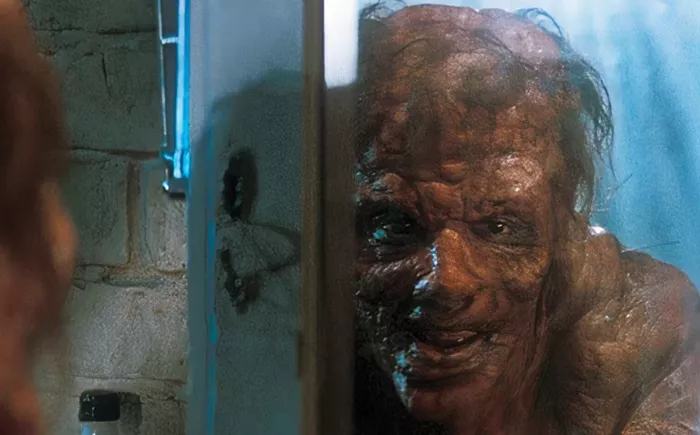Gene Siskel, the legendary critic best known for his prolific partnership with Roger Ebert, spent decades dissecting the highs and lows of cinema across all genres—from horror and comedy to drama and fantasy. While mainstream hits occasionally earned a spot among his top picks, Siskel often championed international films and under-the-radar gems that may have otherwise gone unnoticed by American audiences.
Although Siskel’s reviews spanned the full spectrum of movie genres, he was notably drawn to emotionally rich stories centered around complicated family dynamics and layered relationships. Surprisingly, a number of his most cherished films fall under the umbrella of fantasy, albeit with a broad and interpretive lens. Here are 10 such fantasy-tinged films Siskel praised, reminding us that fantasy isn’t limited to dragons and magic—sometimes, it lives in unexpected places.
10. The Seven-Per-Cent Solution (1976)
This cerebral mystery may not strike viewers as a traditional fantasy movie, but its imaginative pairing of fictional detective Sherlock Holmes and real-life psychoanalyst Sigmund Freud brings a genre-defying twist. Featuring a star-studded cast—Alan Arkin, Nicol Williamson, Vanessa Redgrave, and Laurence Olivier—the film earned two Oscar nominations and ranked among Siskel’s top 10 films of 1976, though Ebert disagreed.
9. Star Wars: Episode IV – A New Hope (1977)
One of the few major blockbusters to capture both critics’ acclaim, Star Wars helped launch a genre-bending franchise that fused science fiction with timeless fantasy movie plots. Siskel and Ebert both hailed George Lucas’s cinematic revolution, which introduced audiences to unforgettable movie characters like Luke Skywalker and Princess Leia. Decades later, it remains a defining film of modern cinema.
8. Nosferatu the Vampyre (1979)
Werner Herzog’s haunting remake of the 1922 silent classic is another film that tested the limits of fantasy. With its eerie gothic tone and hypnotic visuals, Siskel and Ebert were united in praise. It’s a chilling reimagining of Dracula lore—one that relies on psychological tension rather than spectacle.
7. Time After Time (1979)
An innovative blend of history, science fiction, and fantasy, Time After Time follows H.G. Wells as he chases Jack the Ripper through time. Starring Malcolm McDowell and Mary Steenburgen, the film explores fantasy themes like time travel and heroism while wrapped in a detective-style narrative that appealed to Siskel’s sensibilities.
6. The Fly (1986)
At first glance, The Fly may appear to be a niche horror flick, but beneath the grotesque transformation lies a poignant tale of ambition and tragedy. Jeff Goldblum’s intense performance and David Cronenberg’s directorial vision earned it a place among Siskel’s best horror selections, proving that fantasy and sci-fi can overlap in extraordinary ways.
5. Who Framed Roger Rabbit (1988)
Robert Zemeckis broke cinematic ground with this live-action/animation hybrid. A detective story laced with comedy and fantasy, Roger Rabbit wowed Siskel, who was especially impressed by the technical wizardry. He named it one of the best films of the 1980s, highlighting its role in redefining the film industry.
4. Beauty and the Beast (1991)
This animated adaptation of the classic fairy tale was the first of its kind to be nominated for Best Picture. Its enchanting score, powerful themes of transformation and love, and visual brilliance helped revive the musical genre. Siskel believed it marked a rebirth for film musicals long thought extinct.
3. Babe (1995)
A talking pig may not scream “top-tier cinema,” but Babe offered more than adorable farm animals. Its heartwarming story of perseverance, kindness, and self-belief deeply resonated with Siskel. The film blurred the line between fantasy and emotional realism, landing an unexpected Best Picture nomination.
2. Pleasantville (1998)
Starring Tobey Maguire and Reese Witherspoon, this clever allegory about individuality and societal norms sees two teens transported into a 1950s TV show. Siskel appreciated its thematic depth, even if the execution wasn’t flawless. Its inventive narrative qualified it as an underrated entry in fantasy storytelling.
1. Shakespeare in Love (1998)
This Oscar-winning drama captivated Siskel with its elegant merging of fiction and history. Imagining a romance that inspires Shakespeare’s Romeo and Juliet, the film offered charm, wit, and emotional heft. It was among his top picks of the year and a testament to the kind of boundary-blurring cinema he cherished.
While Gene Siskel didn’t always follow conventional definitions, his appreciation for the fantasy movie genre—however loosely interpreted—showcased his ability to recognize storytelling magic in all its forms.

